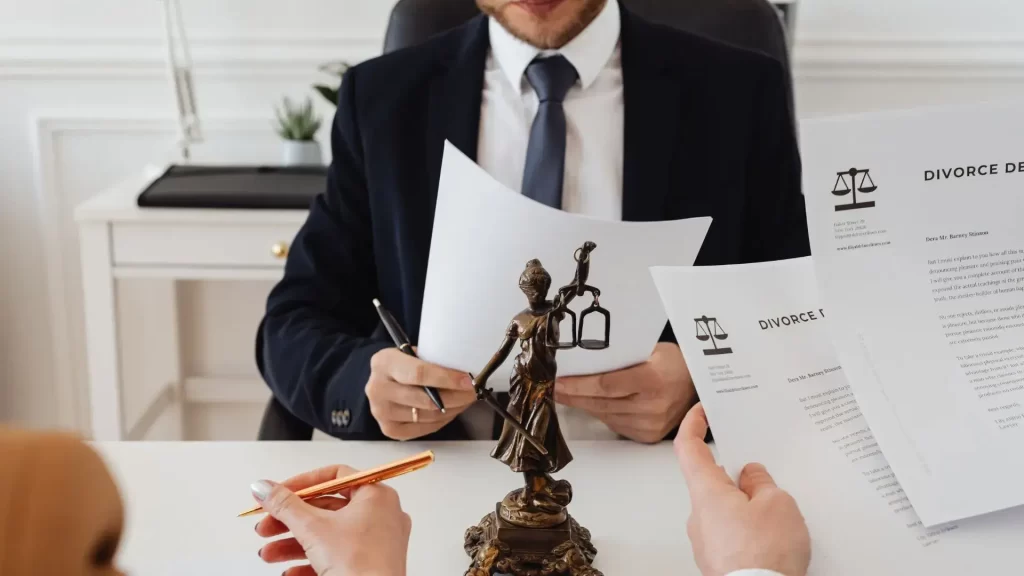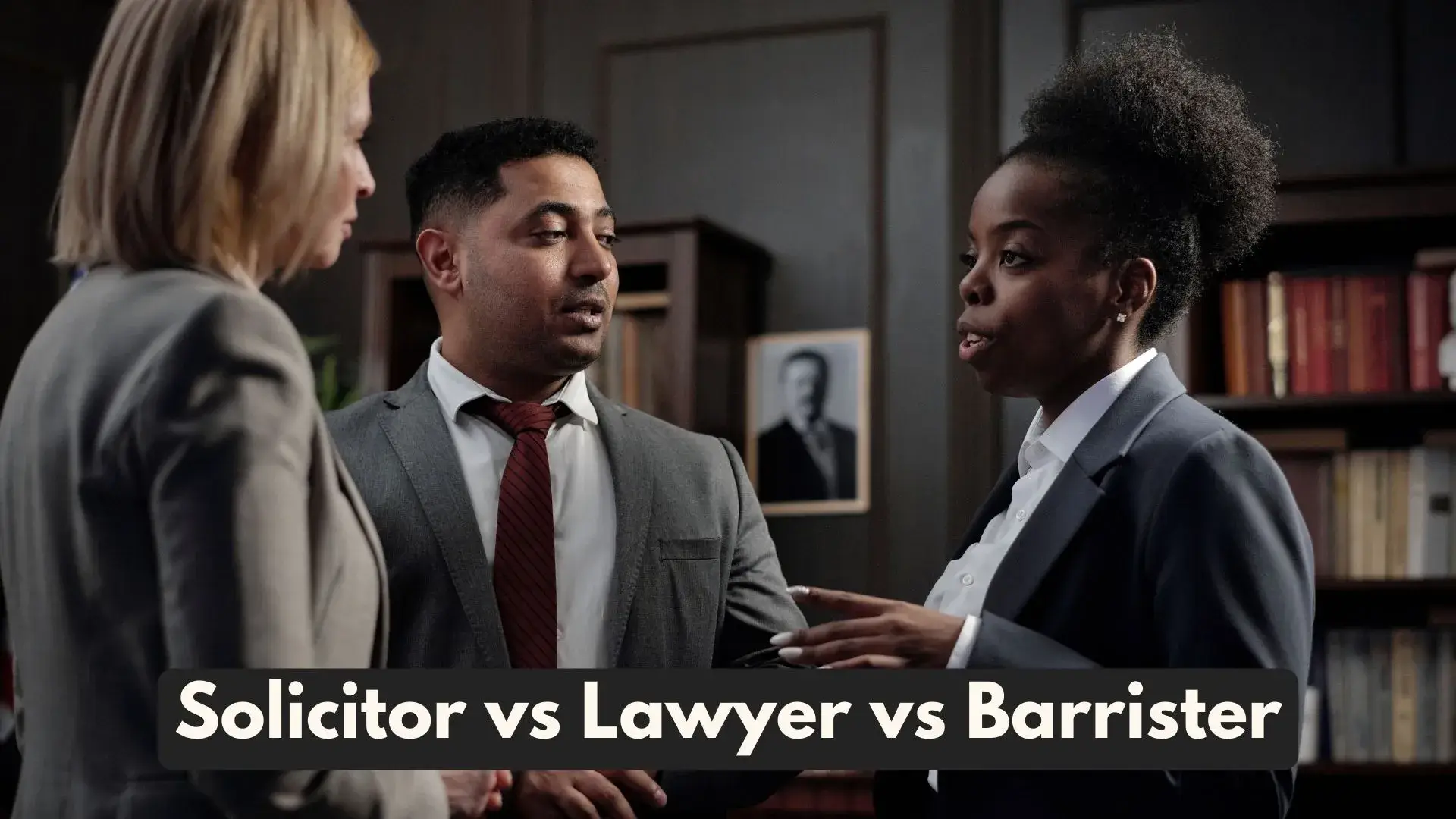The term “Esquire” has a special and fascinating significance in the world of titles and honorifics.
We will go into the realm of Esquire titles in this article, looking at their definition, historical significance, how to get them, the advantages and obligations they come with, the distinct statuses they have in various nations, how they are portrayed in popular culture, and the criticisms they have received.
You will have a thorough understanding of Esquire titles and the subtleties around them by the time you finish.
Long ago, prestige, accomplishments, or professional position were indicated by titles. One such title that has both a historical and modern connotation is Esquire, which is frequently shortened as Esq.
Although it is frequently linked to the legal industry, its application is not limited to that field.
Understanding Esquire Titles
Definition of Esquire Titles
The Latin word “scutarius,” which meant a shield-bearer or a knight’s attendant, is where the term “Esquire” got its start. It transformed into an honorific title signifying a person of higher social status over time.
Esquire is a professional title that is widely used in today’s culture to refer to people who work in the legal industry.
Historical Significance
The history of Esquire titles dates all the way back to medieval Europe. Esquire formerly stood for a status that was lower than a knight but higher than a gentleman.
It represented the gentry and denoted ownership of land. The title, though, started to be increasingly closely identified with the legal profession as societal standards altered.
Using Esquire After Your Name
How to Obtain an Esquire Title
To obtain an Esquire title, certain requirements must be fulfilled.
✅ Educational Requirements
Esquire titles are often earned after a person has earned a law degree.
After passing the bar test, recent law school graduates are frequently permitted to use the title “Esquire.” Nevertheless, laws governing the use of Esquire titles may differ between states.
✅ Legal Requirements
In some nations, a governing body or professional organization may bestow the Esquire title. This honor recognizes a person’s position and merit in the legal community.
These prerequisites may include further education requirements or a certain number of years of experience.
✅ Professional Associations
Members of some professional organizations, such as bar associations, may be given the title of Esquire.
In the legal community, these associations act as governing authorities and promote professional standards.
✅ Role and Responsibilities of an Esquire
Benefits of Working With Lawyer Esquire

Working with a lawyer with the title “Esquire” can have a number of advantages.
The following are some benefits of working with a lawyer Esquire:
✅ Legal Knowledge
Attorneys who hold the title Esquire have obtained the education and training required to practice law. They have in-depth knowledge and comprehension of legal theories, practices, and laws.
They can offer knowledgeable advice, direction, and representation in legal problems thanks to their expertise.
✅ Professionalism & Ethics
Lawyers who use the title Esquire often observe strict moral and professional standards. They abide by a code of conduct that places an emphasis on honesty, discretion, and commitment to their customers.
Working with a lawyer who holds this title might provide you peace of mind that your legal matters are being handled with care and professionalism.
Lawyers Esquire are adept in advocating for and representing clients’ interests in a range of legal contexts. Any time you need representation in court, during negotiations, or in other legal situations, a lawyer with this title can do it well.
They can make your case, advocate in your favor, and offer legal solutions suited to your particular circumstance.
✅ Legal Research And Analysis
Throughout their legal education and practice, lawyers Esquire have honed strong research and analytical skills. They can delve into intricate legal matters, evaluate pertinent statutes, rules, and case laws, then apply them to your particular situation. This skill guarantees thorough analysis and a strong base upon which to construct your legal strategy.
Documentation and legal drafting are skills that attorneys with the title Esquire are skilled at developing. They can guarantee the accuracy, thoroughness, and legitimacy of such documents, whether they be contracts, agreements, wills, or other legal instruments. When drafting or evaluating legal documents, their expertise can aid in defending your rights and interests.
✅ Negotiating And Dispute Resolution
Lawyers Esquire have a wealth of negotiating expertise and conflict resolution experience. They can negotiate effectively with other parties to get results they want.
They can guide you through alternative dispute resolution processes like mediation or arbitration in the case of a legal disagreement in an effort to reach effective and satisfying outcomes.
✅ Legal Strategy And Guidance
Lawyers Esquire can offer insightful legal strategy and guidance that is suited to your legal goals. They can evaluate your case’s advantages and disadvantages, point out potential hazards, and guide you toward the best course of action.
You can traverse the legal system more skillfully and with greater knowledge thanks to their expertise.
Working with an Esquire lawyer provides the certainty of professional expertise, moral behavior, and competent legal representation.
They can safeguard your rights, assist you navigate complicated legal issues, and guide you toward the results you want from the courtroom.
Attorney Vs Lawyer
Esquire Titles in Different Countries

✅ United States
Esquire is a title that is commonly used by lawyers in the United States. It frequently follows an attorney’s name to denote their position in the legal community. Esquire is not required to be used, and many lawyers opt not to. This is a crucial point to keep in mind.
✅ United Kingdom
In the United Kingdom, a gentleman of greater social standing is more commonly addressed as Esquire. It is frequently used to refer to gentry people and is regarded as a courteous way to address people who don’t have higher titles like Sir or Lord.
✅ Australia
Compared to the United States and the United Kingdom, Australia uses Esquire titles less frequently. The term is typically not used to refer to lawyers and is more frequently used in social than professional contexts.
Esquire Titles in Popular Culture
Magazine Esquire
The well-known magazine by the same name, Esquire, is one noteworthy association with the phrase.
Esquire magazine was established in 1933 and features articles on a variety of subjects, such as politics, entertainment, fashion, and more. It has influenced public conversation and grown to be a prominent cultural reference.
Esquire in Film and Television
Film and television have both portrayed Esquire titles. Characters in legal dramas or films frequently use the title Esquire to denote their legal profession.
The common notion of the phrase as being synonymous with the legal profession is influenced by this representation.
Criticisms and Controversies Related To Esquire
![Role and Responsibilities of an Esquire [ Esquire Title, Esquire Definition & More ]](https://thelegalstories.com/wp-content/uploads/2023/05/shutterstock_1038948943-1.webp)
✅ Perceptions of Elitism
Esquire titles have faced criticism for perpetuating a sense of elitism, especially when used as a form of address for lawyers.
Some argue that the usage of the title creates an unnecessary distinction within the legal profession and reinforces social hierarchies.
✅ Debate Over the Use of Esquire
The use of Esquire as a title has sparked debate and discussions in various contexts. Some question its relevance in modern society, suggesting that it may be archaic and unnecessary.
Others argue that the title holds historical significance and should be preserved to honor traditions and professional achievements.
JD vs Esquire
Two titles that are frequently connected to the legal industry are JD and Esquire. There are some distinctions between the two, though.
Juris Doctor, or JD for short, is a professional degree in law. The majority of those who want to become lawyers in the US acquire this degree. Aspiring lawyers enroll in law school to obtain their JD after obtaining their bachelor’s degree.
The JD degree denotes that the person has finished the needed legal education for practicing law. Graduates with a JD can sit for the bar exam to become licensed attorneys.
On the other hand, Esquire is a title placed after a person’s name to denote that they are a lawyer (commonly shortened as Esq.). It is a professional designation rather than an academic degree.
Regardless of whether they have a JD or another type of law degree, anyone who is licensed to practice law in the United States is given the title of Esquire.
Esquire is a professional title that lawyers can use to identify their profession, whereas JD is a degree that lawyers get through their legal education. It is important to note that the way the title “Esquire” is used might change depending on local traditions and individual professional preferences.
Esquire may be used to refer to anyone of superior social status in various nations, not just lawyers, like the United Kingdom.
In conclusion, Esquire is a professional title used to address and identify those who are licensed to practice law, regardless of their specific legal education, while JD is a degree earned through legal education, specifically in the United States.
JD vs Esquire
Conclusion
Esquire titles have a complicated history and distinct connotations in many nations and cultures. Although mostly connected to the legal industry, Esquire titles come with obligations.
They have legal rights and ethical responsibilities, which support lawyers’ professional conduct. In popular culture, as shown in media and literature, Esquire titles have also found a home.
They have faced criticism and controversy nonetheless, with questions regarding elitism and the title’s applicability in modern society being raised.
FAQs
Can anyone use the Esquire title?
The usage of the Esquire title varies depending on the jurisdiction and cultural context. In some countries, such as the United States, it is commonly used by lawyers, while in others, it may have a broader application.
However, it is important to note that the title is not universally recognized or regulated, and individuals should adhere to the specific rules and norms of their respective regions.
Is the usage of Esquire mandatory for lawyers?
No, the usage of the Esquire title is not mandatory for lawyers. It is a matter of personal choice and professional preference.
Some lawyers choose to include it as part of their professional designation, while others prefer not to use it. The decision to use the Esquire title may depend on factors such as jurisdiction, cultural conventions, and individual preferences.
How do Esquire titles differ between the United States and the United Kingdom?
Esquire titles have different connotations and usage between the United States and the United Kingdom. In the United States, the title is often associated with lawyers and is used as an honorific to denote their professional status.
In contrast, in the United Kingdom, Esquire is a polite form of address for gentlemen of higher social standing, regardless of their profession.
Are Esquire titles recognized worldwide?
Esquire titles are not universally recognized worldwide. The usage and recognition of the title vary across different countries and legal systems.
While it may hold significance in certain jurisdictions, its relevance and acceptance may be limited or non-existent in others.
It is advisable to consult the specific regulations and cultural norms of a particular region to determine the recognition and usage of Esquire titles.
What are the common criticisms associated with Esquire titles?
Common criticisms of Esquire titles include perceptions of elitism and the perpetuation of social hierarchies.
Some argue that the usage of the title within the legal profession creates unnecessary distinctions and reinforces an exclusive image.
Additionally, debates arise regarding the relevance of the title in contemporary society, with questions raised about its necessity and potential for outdated conventions. These criticisms reflect ongoing discussions about the role and impact of titles in professional and social contexts.














![Case Management Software - Buyer's Guide [ 6 Must-Check Points ] By thelegalstories.Com](https://thelegalstories.com/wp-content/uploads/2024/01/Red-and-Black-Dark-Gamer-Sports-YouTube-Outro-1.webp)




![Role and Responsibilities of an Esquire [ Esquire Title, Esquire Definition & More ]](https://thelegalstories.com/wp-content/uploads/2023/06/Red-and-Black-Dark-Gamer-Sports-YouTube-Outro-1-1-2.webp)
Leave a Reply